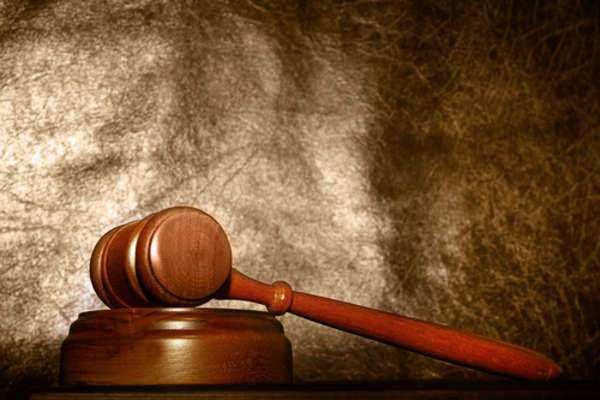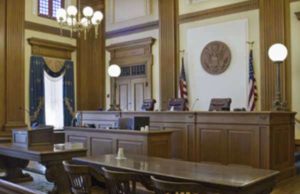Kansas-Nebraska Act Text

Introduction
The Kansas-Nebraska Act was a piece of legislation passed by the U.S. Congress in 1854. It was controversial at the time and is still remembered today for its impact on the issue of slavery in America. In this article, we will provide an overview of the Kansas-Nebraska Act text, including its history, provisions, and impact.
History of the Kansas-Nebraska Act
In the years leading up to the passage of the Kansas-Nebraska Act, tensions were growing between the Northern and Southern states over the issue of slavery. In an effort to ease these tensions and facilitate the expansion of the nation, Senator Stephen A. Douglas of Illinois proposed a bill that would divide the territory into two new states: Kansas and Nebraska.
The bill was controversial because it proposed that the issue of slavery in these new states would be decided by popular sovereignty, meaning that the residents of each state would vote on whether or not to allow slavery. This was a departure from the Missouri Compromise of 1820, which had prohibited slavery north of the 36° 30′ parallel.
Provisions of the Kansas-Nebraska Act Text
The Kansas-Nebraska Act was a complex piece of legislation, but some of its key provisions included:
– The territory of Kansas and Nebraska would be divided, with Kansas situated to the south and Nebraska to the north.
– The issue of slavery in these new states would be decided by popular sovereignty, meaning that the residents of each state would vote on whether or not to allow slavery.
– The Missouri Compromise of 1820, which had prohibited slavery north of the 36° 30′ parallel, would be repealed.
Impact of the Kansas-Nebraska Act Text
The Kansas-Nebraska Act was controversial from the beginning and had a significant impact on the issue of slavery in America. The act led to the formation of the Republican Party, which was founded in opposition to the expansion of slavery into new territories.
The act also led to a period of violence in Kansas, known as “Bleeding Kansas,” in which pro-slavery and anti-slavery forces clashed over the issue of whether or not to allow slavery in the state. This violence foreshadowed the coming Civil War and highlighted the deep-seated divisions between the North and South over the issue of slavery.
Conclusion
The Kansas-Nebraska Act was a landmark piece of legislation that had a significant impact on the issue of slavery in America. Its provisions, which allowed for popular sovereignty in deciding the issue of slavery in new states, were controversial at the time and led to a period of violence in Kansas. While the act was repealed in 1860, its legacy continues to be felt today and serves as a reminder of the challenges that America has faced in its struggle for equality and justice.
An Act to Organize the Territories of Nebraska and Kansas
Be it enacted by the Senate and House of Representatives of the United States of America in Congress assembled, That all that part of the territory of the United States included within the following limits, except such portions thereof as are hereinafter expressly exempted from the operations of this act, to wit: beginning at a point in the Missouri River where the fortieth parallel of north latitude crosses the same; then west on said parallel to the east boundary of the Territory of Utah, the summit of the Rocky Mountains; thence on said summit northwest to the forty-ninth parallel of north latitude; thence east on said parallel to the western boundary of the territory of Minnesota; thence southward on said boundary to the Missouri River; thence down the main channel of said river to the place of beginning, be, and the same is hereby, created into a temporary government by the name of the Territory Nebraska; and when admitted as a State or States, the said Territory or any portion of the same, shall be received into the Union with without slavery, as their constitution may prescribe at the time of the admission: Provided, That nothing in this act contained shall be construed to inhibit the government of the United States from dividing said Territory into two or more Territories, in such manner and at such time as Congress shall deem convenient and proper, or from attaching a portion of said Territory to any other State or Territory of the United States: Provided further, That nothing in this act contained shall be construed to impair the rights of person or property now pertaining the Indians in said Territory’ so long as such rights shall remain unextinguished by treaty between the United States and such Indians, or include any territory which, by treaty with any Indian tribe, is not, without the consent of said tribe, to be included within the territorial line or jurisdiction of any State or Territory; but all such territory shall excepted out of the boundaries, and constitute no part of the Territory of Nebraska, until said tribe shall signify their assent to the President of the United States to be included within the said Territory of Nebraska or to affect the authority of the government of the United States make any regulations respecting such Indians, their lands, property, or other rights, by treaty, law, or otherwise, which it would have been competent to the government to make if this act had never passed.
SEC. 2. And Be it further enacted, That the executive power and authority in and over said Territory of Nebraska shall be vested in a Governor who shall hold his office for four years, and until his successor shall be appointed and qualified, unless sooner removed by the President of the United States. The Governor shall reside within said Territory, and shall be commander-in-chief of the militia thereof. He may grant pardons and respites for offences against the laws of said Territory, and reprieves for offences against the laws of the United States, until the decision of the President can be made known thereon; he shall commission all officers who shall be appointed to office under the laws of the aid Territory, and shall take care that the laws be faithfully executed.
SEC. 3. And Be it further enacted, That there shall be a Secretary of said Territory, who shall reside therein, and hold his office for five years, unless sooner removed by the President of the United States; he shall record and preserve all the laws and proceedings of the Legislative Assembly hereinafter constituted, and all the acts and proceedings of the Governor in his executive department; he shall transmit one copy of the laws and journals of the Legislative Assembly within thirty days after the end of each session, and one copy of the executive proceedings and official correspondence semi-annually, on the first days of January and July in each year to the President of the United States, and two copies of the laws to the President of the Senate and to the Speaker of the House of Representatives, to be deposited in the libraries of Congress, and in or case of the death, removal, resignation, or absence of the Governor from the Territory, the Secretary shall be, and he is hereby, authorized and required to execute and perform all the powers and duties of the Governor during such vacancy or absence, or until another Governor shall be duly appointed and qualified to fill such vacancy.
SEC 4. And be it further enacted, That the legislative power and authority of said Territory shall be vested in the Governor and a Legislative Assembly. The Legislative Assembly shall consist of a Council and House of Representatives. The Council shall consist of thirteen members, having the qualifications of voters, as hereinafter prescribed, whose term of service shall continue two years. The House of Representatives shall, at its first session, consist of twenty-six members, possessing the same qualifications as prescribed for members of the Council, and whose term of service shall continue one year. The number of representatives may be increased by the Legislative Assembly, from time to time, in proportion to the increase of qualified voters: Provided, That the whole number shall never exceed thirty-nine. An apportionment shall be made, as nearly equal as practicable, among the several counties or districts, for the election of the council and representatives, giving to each section of the Territory representation in the ratio of its qualified voters as nearly as may be. And the members of the Council and of the House of Representatives shall reside in, and be inhabitants of, the district or county, or counties for which they may be elected, respectively. Previous to the first election, the Governor shall cause a census, or enumeration of the inhabitants and qualified voters of the several counties and districts of the Territory, to be taken by such persons and in such mode as the Governor shall designate and appoint; and the persons so appointed shall receive a reasonable compensation therefor. And the first election shall be held at such time and places, and be conducted in such manner, both as to the persons who shall superintend such election and the returns thereof, as the Governor shall appoint and direct; and he shall at the same time declare the number of members of the Council and House of Representatives to which each of the counties or districts shall be entitled under this act. The persons having the highest number of legal votes in each of said council districts for members of the Council, shall be declared by the Governor to be duly elected to the Council; and the persons having the highest number of legal votes for the House of Representatives, shall be declared by the Governor to be duly elected members of said house: Provided, That in case two or more persons voted for shall have an equal number of votes, and in case a vacancy shall otherwise occur in either branch of the Legislative Assembly, the Governor shall order a new election; and the persons thus elected to the Legislative Assembly shall meet at such place and on such day as the Governor shall appoint; but thereafter, the time, place, and manner of holding and conducting all elections by the people, and the apportioning the representation in the several counties or districts to the Council and House of Representatives, according to the number of qualified voters, shall be prescribed by law, as well as the day of the commencement of the regular sessions of the Legislative Assembly: Provided, That no session in any one year shall exceed the term of forty days, except the first session, which may continue sixty days.
SEC. 5. And be it further enacted, That every free white male inhabitant above the age of twenty-one years who shall be an actual resident of said Territory, and shall possess the qualifications hereinafter prescribed, shall be entitled to vote at the first election, and shall be eligible to any office within the said Territory; but the qualifications of voters, and of holding office, at all subsequent elections, shall be such as shall be prescribed by the Legislative Assembly: Provided, That the right of suffrage and of holding office shall be exercised only by citizens of the United States and those who shall have declared on oath their intention to become such, and shall have taken an oath to support the Constitution of the United States and the provisions of this act: And provided further, That no officer, soldier, seaman, or marine, or other person in the army or navy of the United States, or attached to troops in the service of the United States, shall be allowed to vote or hold office in said Territory, by reason of being on service therein.
SEC. 6. And Be it further enacted, That the legislative power of the Territory shall extend to all rightful subjects of legislation consistent with the Constitution of the United States and the provisions of this act; but no law shall be passed interfering with the primary disposal of the soil; no tax shall be imposed upon the property of the United States; nor shall the lands or other property of non-residents be taxed higher than the lands or other property of residents. Every bill which shall have passed the Council and House of Representatives of the said Territory shall, before it become a law, be presented to the Governor of the Territory; if he approve, he shall sign it; but if not, he shall return it with his objections to the house in which it originated, who shall enter the objections at large on their journal, and proceed to reconsider it. If, after such reconsideration two thirds of that house shall agree to pass the bill, it shall be sent, together with the objections, to the other house, by which it shall likewise be reconsidered, and if approved by two thirds of that house, it shall become a law. But in all such cases the votes of both houses shall be determined by yeas and nays, to be entered on the journal of each house respectively. If any bill shall not be returned by the Governor within three days (Sundays excepted) after it shall have been presented to him, the same shall be a law in like manner as if he had signed it, unless the Assembly, by adjournment, prevents its return, in which case it shall not be a law.
SEC. 7. And be it further enacted, That all township, district, and county officers, not herein otherwise provided for, shall be appointed or elected, as the case may be, in such manner as shall be provided by the Governor and Legislative Assembly of the Territory of Nebraska. The Governor shall nominate, and, by and with the advice and consent of the Legislative Council, appoint all officers not herein otherwise provided for; and in the first instance the Governor alone may appoint all said officers, who shall hold their offices until the end of the first session of the Legislative Assembly; and shall lay off the necessary districts for members of the Council and House of Representatives, and all other officers.
SEC. 8. And be it further enacted, That no member of the Legislative Assembly shall hold, or be appointed to, any office which shall have been created, or the salary or emoluments of which shall have been increased, while he was a member, during the term for which he was elected, and for one year after the expiration of such term; but this restriction shall not be applicable to members of the first Legislative Assembly; and no person holding a commission or appointment under the United States, except Postmasters, shall be a member of the Legislative Assembly, or hold any office under the government of said Territory.
SEC. 9. And be it further enacted, That the judicial power of said Territory shall be vested in a Supreme Court, District Courts, Probate Courts, and in Justices of the Peace. The Supreme Court shall consist of a chief justice and two associate justices, any two of whom shall constitute a quorum, and who shall hold a term at the seat of government of said Territory annually, and they shall hold their offices during the period of four years, and until their successor shall be appointed and qualified. The said Territory shall be divided into three judicial districts, and a d district court shall be held in each of said districts by one of the justices of the Supreme Court, at such times and places as may be prescribed by of law; and the said judges shall, after their appointments, respectively, reside in the districts which shall be assigned them. The jurisdiction of the several courts herein provided for, both appellate and original, and that of the probate courts and of justices of the peace, shall be as limited by law: Provided, That justices of the peace shall not have jurisdiction of any matter in controversy when the title or boundaries of land may be in dispute, or where the debt or sum claimed shall exceed one hundred dollars; and the said supreme and districts courts, respectively, shall possess chancery as well as common law jurisdiction. Each District Court, or the judge thereof, shall appoint its clerk, who shall also be the register in chancery, and shall keep his office at the place where the court may be held. Writs of error, bills of exception, and appeals, shall be allowed in all cases from the final decisions of said district courts to the Supreme Court, under such regulations as may be prescribed by law; but in no case removed to the Supreme Court shall trial by jury be allowed in said court. The Supreme Court, or the justices thereof, shall appoint its own clerk, and every clerk shall hold his office at the pleasure of the court for which he shall have been appointed. Writs of error, and appeals from the final decisions of said Supreme Court, shall be allowed, and may be taken to the Supreme Court of the United States, in the same manner and under the same regulations as from the circuit courts of the United States, where the value of the property, or the amount in controversy, to be ascertained by the oath or affirmation of either party, or other competent witness, shall exceed one thousand dollars; except only that in all cases involving title to slaves, the said writs of error, or appeals shall be allowed and decided by the said Supreme Court, without regard to the value of the matter, property, or title in controversy; and except also that a writ of error or appeal shall also be allowed to the Supreme Court of the United States, from the decision of the said Supreme Court created by this act, or of any judge thereof, or of the district courts created by this act, or of any judge thereof, upon any writ of habeas corpus, involving the question of personal freedom: Provided, that nothing herein contained shall be construed to apply to or affect the provisions to the ” act respecting fugitives from justice, and persons escaping from the service of their masters,” approved February twelfth, seventeen hundred and ninety-three, and the ” act to amend and supplementary to the aforesaid act,” approved September eighteen, eighteen hundred and fifty; and each of the said district courts shall have and exercise the same jurisdiction in all cases arising under the Constitution and Laws of the United States as is vested in the Circuit and District Courts of the United States; and the said Supreme and District Courts of the said Territory, and the respective judges thereof, shall and may grant writs of habeas corpus in all cases in which the same are granted by the judges of the United States in the District of Columbia; and the first six days of every term of said courts, or so much thereof as shall be necessary, shall be appropriated to the trial of causes arising under the said constitution and laws, and writs of error and appeal in all such cases shall be made to the Supreme Court of said Territory, the same as in other cases. The said clerk shall receive in all such cases the same fees which the clerks of the district courts of Utah Territory now receive for similar services.
SEC. 10. And Be it further enacted, That the provisions of an act entitled “An act respecting fugitives from justice, and persons escaping from the service of their masters,” approved February twelve, seventeen hundred and ninety-three, and the provisions of the act entitled ” An act to amend, and supplementary to, the aforesaid act,” approved September eighteen, eighteen hundred and fifty, be, and the same are hereby, declared to extend to and be in full force within the limits of said Territory of Nebraska.
SEC. 11. And be it further enacted, That there shall be appointed an Attorney for said Territory, who shall continue in office for four years, and until his successor shall be appointed and qualified, unless sooner removed by the President, and who shall receive the same fees and salary I as the Attorney of the United States for the present Territory of Utah. There shall also be a Marshal for the Territory appointed, who shall hold his office for four years, and until his successor shall be appointed and qualified, unless sooner removed by the President, and who shall execute all processes issuing from the said courts when exercising their jurisdiction as Circuit and District Courts of the United States; he shall perform the duties, be subject to the same regulation and penalties, and be entitled to the same fees, as the Marshal of the District Court of the United States for the present Territory of Utah, and shall, in addition, be paid two hundred dollars annually as a compensation for extra services.
SEC. 12. And be it further enacted, That the Governor, Secretary, Chief Justice, and Associate Justices, Attorney and Marshal, shall be nominated, and, by and with the advice and consent of the Senate, appointed by the President of the United States. The Governor and a Secretary to be appointed as aforesaid, shall, before they act as such, respectively take an oath or affirmation before the District Judge or some Justice of the Peace in the limits of said Territory, duly authorized to administer oaths and affirmations by the laws now in force therein, or & before the Chief Justice, or some Associate Justice of the Supreme Court of the United States, to support the Constitution of the United States, and faithfully to discharge the duties of their respective offices, which said oaths, when so taken, shall be certified by the person by whom the same shall have been taken; and such certificates shall be received and recorded by the said Secretary among the Executive proceedings; and the Chief Justice and Associate Justices, and all other civil officers in said Territory, before they act as such, shall take a like oath or affirmation before the said Governor or Secretary, or some Judge or Justice of the Peace of the Territory, who may be duly commissioned and qualified, which said oath or affirmation shall be certified and transmitted by the person taking the same to the Secretary, to be by him recorded as aforesaid; and, afterwards, the like oath or affirmation shall be taken, certified, and recorded, in such manner and form as may be prescribed by law. The Governor shall receive an annual salary of two thousand five hundred dollars. The Chief Justice and Associate Justices shall each receive an annual salary of two thousand dollars. The Secretary shall receive an annual salary of two thousand dollars. The said salaries shall be paid quarter-yearly, from the dates of the respective appointments, at the Treasury of the United States; but no such payment shall be made until said officers shall have entered upon the duties of their respective appointments. The members of the Legislative Assembly shall be entitled to receive three dollars each per day during their attendance at the sessions thereof, and three dollars each for every twenty miles’ travel in going to and returning from the said sessions, estimated according to the nearest usually travelled route; and an additional allowance of three dollars shall be paid to the presiding officer of each house for each day he shall so preside. And a chief clerk, one assistant clerk, a sergeant-at-arms, and doorkeeper, may be chosen for each house; and the chief clerk shall receive four dollars per day, and the said other officers three dollars per day, during the session of the Legislative Assembly; but no other officers shall be paid by the United States: Provided, That there shall be but one session of the legislature annually, unless, on an extraordinary occasion, the Governor shall think proper to call the legislature together. There shall be appropriated, annually, the usual sum, to be expended by the Governor, to defray the contingent expenses of the Territory, including the salary of a clerk of the Executive Department; and there shall also be appropriated, annually, a sufficient sum, to be expended by the Secretary of the Territory, and upon an estimate to be made by the Secretary of the Treasury of the United States, to defray the expenses of the Legislative Assembly, the printing of the laws, and other incidental expenses; and the Governor and Secretary of the Territory shall, in the disbursement of all moneys intrusted to them, be governed solely by the instructions of the Secretary of the Treasury of the United States, and shall, semi-annually, account to the said Secretary for the manner in which the aforesaid moneys shall have been expended; and no expenditure shall be made by said Legislative Assembly for objects not specially authorized by the acts of Congress, making the appropriations, nor beyond the sums thus appropriated for such objects.
SEC. 13. And be it further enacted, That the Legislative Assembly of the Territory of Nebraska shall hold its first session at such time and place in said Territory as the Governor thereof shall appoint and direct; and at said first session, or as soon thereafter as they shall deem expedient, the Governor and Legislative Assembly shall proceed to locate and establish the seat of government for said Territory at such place as they may deem eligible; which place, however, shall thereafter be subject to be changed by the said Governor and Legislative Assembly.
SEC. 14. And be it further enacted, That a delegate to the House of Representatives of the United States, to serve for the term of two years, who shall be a citizen of the United States, may be elected by the voters qualified to elect members of the Legislative Assembly, who shall be entitled to the same rights and privileges as are exercised and enjoyed by the delegates from the several other Territories of the United States to the said House of Representatives, but the delegate first elected shall hold his seat only during the term of the Congress to which he shall be elected. The first election shall be held at such time and places, and be conducted in such manner, as the Governor shall appoint and direct; and at all subsequent elections the times, places, and manner of holding the elections, shall be prescribed by law. The person having the greatest number of votes shall be declared by the Governor to be duly elected; and a certificate thereof shall be given accordingly. That the Constitution, and all Laws of the United States which are not locally inapplicable, shall have the same force and effect within the said Territory of Nebraska as elsewhere within the United States, except the eighth section of the act preparatory to the admission of Missouri into the Union approved March sixth, eighteen hundred and twenty, which, being inconsistent with the principle of non-intervention by Congress with slaves in the States and Territories, as recognized by the legislation of eighteen hundred and fifty, commonly called the Compromise Measures, is hereby declared inoperative and void; it being the true intent and meaning of this act not to legislate slavery into any Territory or State, nor to exclude it therefrom, but to leave the people thereof perfectly free to form and regulate their domestic institutions in their own way, subject only to the Constitution of the United States: Provided, That nothing herein contained shall be construed to revive or put in force any law or regulation which may have existed prior to the act of sixth March, eighteen hundred and twenty, either protecting, establishing, prohibiting, or abolishing slavery.
SEC. 15. And Be it further enacted, That there shall hereafter be appropriated, as has been customary for the Territorial governments, sufficient amount, to be expended under the direction of the said Governor of the Territory of Nebraska, not exceeding the sums heretofore appropriated for similar objects, for the erection of suitable public buildings at the seat of government, and for the purchase of a library, to be kept at the seat of government for the use of the Governor, Legislative Assembly, Judges of the Supreme Court, Secretary, Marshal, and Attorney of said Territory, and such other persons, and under such regulations as shall be prescribed by law.
SEC. 16. And be it further enacted, That when the lands in the said Territory shall be surveyed under the direction of the government of the United States, preparatory to bringing the same into market, section; numbered sixteen and thirty-six in each township in said Territory shall be, and the same are hereby, reserved for the purpose of being applied to schools in said Territory, and in the States and Territories hereafter to be erected out of the same.
SEC. 17. And be it further enacted, That, until otherwise provided by law, the Governor of said Territory may define the Judicial Districts of said Territory, and assign the judges who may be appointed for said Territory to the several districts; and also appoint the times and places for holding courts in the several counties or subdivisions in each of said Judicial Districts by proclamation, to be issued by him; but the Legislative Assembly, at their first or any subsequent session, may organize, alter, or modify such Judicial Districts, and assign the judges, and alter the times and places of holding the courts, as to them shall seem proper and convenient.
SEC. 18. And be it further enacted, That all officers to be appointed by the President, by and with the advice and consent of the Senate, for the Territory of Nebraska, who, by virtue of the provisions of any law now existing, or which may be enacted during the present Congress, are required to give security for moneys that may be intrusted with them for disbursement, shall give such security, at such time and place, and in such manner, as the Secretary of the Treasury may prescribe.
SEC. 19. And be it further enacted, That al1 that part of the Territory of the United States included within the following limits, except such portions thereof as are hereinafter expressly exempted from the operations of this act, to wit, beginning at a point on the western boundary of the State of Missouri, where the thirty-seventh parallel of north latitude crosses the same; thence west on said parallel to the eastern boundary of New Mexico; thence north on said boundary to latitude thirty-eight; thence following said boundary westward to the east boundary of the Territory of Utah, on the summit of the Rocky Mountains; thence northward on said summit to the fortieth parallel of latitude, thence east on said parallel to the western boundary of the State of Missouri; thence south with the western boundary of said State to the place of beginning, be, and the same is hereby, created into a temporary government by the name of the Territory of Kansas; and when admitted as a State or States, the said Territory, or any portion of the same, shall be received into the Union with or without slavery, as their Constitution may prescribe at the time of their admission: Provided, That nothing in this act contained shall be construed to inhibit the government of the United States from dividing said Territory into two or more Territories, in such manner and at such times as Congress shall deem convenient and proper, or from attaching any portion of said Territory to any other State or Territory of the United States: Provided further, That nothing in this act contained shall be construed to impair the rights of person or property now pertaining to the Indians in said Territory, so long as such rights shall remain unextinguished by treaty between the United States and such Indians, or to include any territory which, by treaty with any Indian tribe, is not, without the consent of said tribe, to be included within the territorial limits or jurisdiction of any State or Territory; but all such territory shall be excepted out of the boundaries, and constitute no part of the Territory of Kansas, until said tribe shall signify their assent to the President of the United States to be included within the said Territory of Kansas, or to affect the authority of the government of the United States to make any regulation respecting such Indians, their lands, property, or other rights, by treaty, law, or otherwise, which it would have been competent to the government to make if this act had never passed.
SEC. 20. And be it further enacted, That the executive power and chin authority in and over said Territory of Kansas shall be vested in a Governor, who shall hold his office for four years, and until his successor shall be appointed and qualified, unless sooner removed by the President of the United States. The Governor shall reside within said Territory, and shall be commander-in-chief of the militia thereof. He may grant pardons and respites for offences against the laws of said Territory, and reprieves for offences against the laws of the United States, until the decision of the President can be made known thereon; he shall commission all officers who shall be appointed to office under the laws of the said Territory, and shall take care that the laws be faithfully executed.
SEC. 21. And be it further enacted, That there shall be a Secretary of said Territory, who shall reside therein, and hold his office for five years, unless sooner removed by the President of the United States; he shall record and preserve all the laws and proceedings of the Legislative Assembly hereinafter constituted, and all the acts and proceedings of the Governor in his Executive Department; he shall transmit one copy of the laws and journals of the Legislative Assembly within thirty days after the end of each session, and one copy of the executive proceedings and official correspondence semi-annually, on the first days of January and July in each year, to the President of the United States, and two copies of the laws to the President of the Senate and to the Speaker of the House of Representatives, to be deposited in the libraries of Congress; and, in case of the death, removal, resignation, or absence of the Governor from the Territory, the Secretary shall be, and he is hereby, authorized and required to execute and perform all the powers and duties of the Governor during such vacancy or absence, or until another Governor shall be duly appointed and qualified to fill such vacancy.
SEC. 22. And be it further enacted, That the legislative power and authority of said Territory shall be vested in the Governor and a Legislative Assembly. The Legislative Assembly shall consist of a Council and House of Representatives. The Council shall consist of thirteen members, having the qualifications of voters, as hereinafter prescribed, whose term of service shall continue two years. The House of Representatives shall, at its first session, consist of twenty-six members possessing the same qualifications as prescribed for members of the Council, and whose term of service shall continue one year. The number of representatives may be increased by the Legislative Assembly, from time to time, in proportion to the increase of qualified voters: Provided, That the whole number shall never exceed thirty-nine. An apportionment shall be made, as nearly equal as practicable, among the several counties or districts, for the election of the Council and Representatives, giving to each section of the Territory representation in the ratio of its qualified voters as nearly as may be. And the members of the Council and of the House of Representatives shall reside in, and be inhabitants of, the district or county, or counties, for which they may be elected, respectively. Previous to the first election, the Governor shall cause a census, or enumeration of the inhabitants and qualified voters of the several counties and districts of the Territory, to be taken by such persons and in such mode as the Governor shall designate and appoint; and the persons so appointed shall receive a reasonable compensation therefor. And the first election shall be held at such time and places, and be conducted in such manner, both as to the persons who shall superintend such election and the returns thereof, as the Governor shall appoint and direct; and he shall at the same time declare the number of members of the Council and House of Representatives to which each of the counties or districts shall be entitled under this act. The persons having the highest number of legal votes in each of said Council Districts for members of the Council, shall be declared by the Governor to be duly elected to the Council; and the persons having the highest number of legal votes for the House of Representatives, shall be declared by the Governor to be duly elected members of said house: Provided, That in case two or more persons voted for shall have an equal number of votes, and in case of a vacancy shall otherwise occur in either branch of the Legislative Assembly, the Governor shall order a new election; and the persons thus elected to the Legislative Assembly shall meet at such place and on such day as the Governor shall appoint; but thereafter, the time, place, and manner of holding and conducting all elections by the people, and the apportioning the representation in the several counties or districts to the Council and House of Representatives, according to the number of qualified t voters, shall be prescribed by law, as well as the day of the commencement of the regular sessions of the Legislative Assembly: Provided, That no session in any one year shall exceed the term of forty days, except the first session, which may continue sixty days.
SEC. 23. And be it further enacted, That every free white male inhabitant above the age of twenty-one years, who shall be an actual resident of said Territory, and shall possess the qualifications hereinafter prescribed, shall be entitled to vote at the first election, and shall be eligible to any office within the said Territory; but the qualifications of voters, and of holding office, at all subsequent elections, shall be such as shall be prescribed by the Legislative Assembly: Provided, That the right of suffrage and of holding office shall be exercised only by citizens of the United States, and those who shall have declared, on oath, their intention to become such, and shall have taken an oath to support the Constitution of the United States and the provisions of this act: And, provided further, That no officer, soldier, seaman, or marine, or other person in the army or navy of the United States, or attached to troops in the service of the United States, shall be allowed to vote or hold office in said Territory by reason of being on service therein.
SEC. 24. And be it further enacted, That the legislative power of the Territory shall extend to all rightful subjects of legislation consistent with the Constitution of the United States and the provisions of this act; but no law shall be passed interfering with the primary disposa1 of the soil; no tax shall be imposed upon the property of the United States; nor shall the lands or other property of non-residents be taxed higher than the lands or other properly of residents. Every bill which shall have passed the Council and House of Representatives of the said Territory shall, before it become a law, be presented to the Governor of the Territory; if he approve, he shall sign it; but if not, he shall return it with his objections to the house in which it originated, who shall enter the objections at large on their journal, and proceed to reconsider it. If, after such reconsideration, two thirds of that house shall agree to pass the bill, it shall be sent, together with the objections, to the other house, by which, it shall likewise be reconsidered, and, if approved by two thirds of that house, it shall become a law. But in all such cases the votes of both houses shall be determined by yeas and nays, to be entered on the journal of each house, respectively. If any bill shall not be returned by the Governor within three days (Sundays excepted) after it shall have been presented to him, the same shall be a law in like manner as if he had signed it, unless the Assembly, by adjournment, prevent its return, in which case it shall not be a law.
SEC. 25. And be it further enacted, That all township, district, and; county officers, not herein otherwise provided for, shall be appointed or elected as the case may be, in such manner as shall be provided by the Governor and Legislative Assembly of the Territory of Kansas. The Governor shall nominate, and, by and with the advice and consent of the Legislative Council, appoint all officers not herein otherwise provided for; and, in the first instance, the Governor alone may appoint all said officers, who shall hold their offices until the end of the first session of the Legislative Assembly; and shall lay off the necessary districts for members of the Council and House of Representatives, and all other officers.
SEC. 26. And be it further enacted, That no member of the Legislative Assembly shall hold, or be appointed to, any office which shall have been created, or the salary or emoluments of which shall have been increased, while he was a member, during the term for which he was elected, and for one year after the expiration of such term; but this restriction shall not be applicable to members of the first Legislative Assembly; and no person holding a commission or appointment under the United States, except postmasters, shall be a member of the Legislative Assembly, or shall hold any office under the government of said Territory.
SEC. 27. And be it further enacted, That the judicial power of said Territory shall be vested in a supreme court, district courts, probate courts, and in justices of the peace. The Supreme Court shall Consist of chief justice and two associate justices, any two of whom shall constitute a quorum, and who shall hold a term at the seat of government of said Territory annually; and they shall hold their offices during the period of four years, and until their successors shall be appointed and qualified. The said Territory shall be divided into three judicial districts, and a district court shall be held in each of said districts by one of the justices of the Supreme Court, at such times and places as may be prescribed by law; and the said judges shall, after their appointments, respectively, reside in the districts which shall be assigned them. The jurisdiction of the several courts herein provided for, both appellate and original, and that of the probate courts and of justices of the peace, shall be as limited by law: Provided, That justices of the peace shall not have jurisdiction of any matter in controversy when the title or boundaries of land may be in dispute, or where the debt or sum claimed shall exceed one hundred dollars; and the said supreme and district courts, respectively, shall possess chancery as well as common law jurisdiction. Said District Court, or the judge thereof, shall appoint its clerk, who shall also be the register in chancery, and shall keep his office at the place where the court may be held. Writs of error, bills of exception, and appeals shall be allowed in all cases from the final decisions of said district courts to the Supreme Court, under such regulations as may be prescribed by law; but in no case removed to the Supreme Court shall trial by jury be allowed in said court. The Supreme Court, or the justices thereof, shall appoint its own clerk, and every clerk shall hold his office at the pleasure of the court for which he shall have been appointed. Writs of error, and appeals from the final decisions of said supreme court, shall be allowed, and may be taken to the Supreme Court of the United States, in the same manner and under the same regulations as from the Circuit Courts of the United States, where the value of the property, or the amount in controversy, to be ascertained by the oath or affirmation of either party, or other competent witness, shall exceed one thousand dollars; except only that in all cases involving title to slaves, the said writ of error or appeals shall be allowed and decided by said supreme court, without regard to the value of the matter, property, or title in controversy; and except also that a writ of error or appeal shall also be allowed to the Supreme Court of the United States, from the decision of the said supreme court created by this act, or of any judge thereof, or of the district courts created by this act, or of any judge thereof, upon any writ of habeas corpus, involving the question of personal freedom: Provided, That nothing herein contained shall be construed to apply to or affect the provisions of the ” act respecting fugitives from justice, and persons escaping from the service of their masters,” approved February twelfth, – seventeen hundred and ninety-three, and the ” act to amend and supplementary to the aforesaid act,” approved September eighteenth, eighteen hundred and fifty; and each of the said district courts shall have and exercise the same jurisdiction in all cases arising under the Constitution and laws of the United States as is vested in the Circuit and District Courts of the United States; and the said supreme and district courts of the said Territory, and the respective judges thereof, shall and may grant writs of habeas corpus in all cases in which the same are granted by the judges of the United States in the District of Columbia; and the first six days of every term of said courts, or so much thereof as may be necessary, shall be appropriated to the trial of causes arising under the said Constitution and laws, and writs of error and appeal in all such cases shall-be made to the Supreme Court of said Territory, the same as in other cases. The said clerk shall receive the same fees in all such cases, which the clerks of the district courts of Utah Territory now receive for similar services.
SEC. 28. And be it further enacted, That the provisions of the act entitled ” An act respecting fugitives from justice, and persons escaping from, the service of their masters,” approved February twelfth, seventeen hundred and ninety-three, and the provisions of the act entitled “An act to amend, and supplementary to, the aforesaid act,” approved September eighteenth, eighteen hundred and fifty, be, and the same are hereby, declared to extend to and be in full force within the limits of the said Territory of Kansas.
SEC. 29. And be it further enacted, That there shall be appointed an attorney for said Territory, who shall continue in office for four years, and until his successor shall be appointed and qualified, unless sooner removed by the President, and who shall receive the same fees and salary as the Attorney of the United States for the present Territory of Utah. There shall also be a marshal for the Territory appointed, who shall hold his office for four years, and until his successor shall be appointed and qualified, unless sooner removed by the President, and who shall execute all processes issuing from the said courts where exercising their jurisdiction as Circuit and District Courts of the United States; he shall perform the duties, be subject to the same regulations and penalties, and be entitled to the same fees, as the Marshal of the District Court of the United States for the present Territory of Utah, and shall, in addition, be paid two hundred dollars annually as a compensation for extra services.
SEC. 30. And be it further enacted, That the Governor, Secretary, Chief Justice, and Associate Justices, Attorney, and Marshal, shall be nominated, and, by and with the advice and consent of the Senate, appointed by the President of the United States. The Governor and Secretary to be appointed as aforesaid shall, before they act as such, respectively take an oath or affirmation before the district judge or some justice of the peace in the limits of said Territory, duly authorized to administer oaths and affirmations by the laws now in force therein, or before the Chief Justice or some Associate Justice of the Supreme Court of the United States, to support the Constitution of the United States, and faithfully to discharge the duties of their respective offices, which said oaths, when so taken, shall be certified by the person by whom the same shall have been taken; and such certificates shall be received and recorded by the said secretary among the executive proceedings; and the Chief Justice and Associate Justices, and all other civil officers in said Territory, before they act as such, shall take a like oath or affirmation before the said Governor or Secretary, or some Judge or Justice of the Peace of the Territory who may be duly commissioned and qualified, which said oath or affirmation shall be certified and transmitted by the person taking the same to the Secretary, to be by him recorded as aforesaid; and, afterwards, the like oath or affirmation shall be taken, certified, and recorded, in such manner and form as may be prescribed by law. The Governor shall receive an annual salary of two thousand five hundred dollars. The Chief Justice and Associate Justices shall receive as an annual salary of two thousand dollars. The Secretary shall receive an annual salary of two thousand dollars. The said salaries shall be paid quarter-yearly, from the dates of the respective appointments, at the Treasury of the United States; but no such payment shall be made until said officers shall have entered upon the duties of their respective appointments. The members of the Legislative Assembly shall be entitled to receive three dollars each per day during their attendance at the sessions thereof, and three dollars each for every twenty miles’ travel in going to and returning from the said sessions, estimated according to the nearest usually travelled route; and an additional allowance of three dollars shall be paid to the presiding officer of each house for each day he shall so preside. And a chief clerk, one assistant clerk, a sergeant at-arms, and door-keeper, may be chosen for each house; and the chief clerk shall receive four dollars per day, and the said other officers three dollars per day, during the session of the Legislative Assembly; but no to other officers shall be paid by the United States: Provided, That there shall be but one session of the Legislature annually, unless, on an extraordinary occasion, the Governor shall think proper to call the Legislature together. There shall be appropriated, annually, the usual sum, to be expended by the Governor, to defray the contingent expenses of the Territory, including the salary of a clerk of the Executive Department and there shall also be appropriated, annually, a sufficient sum, to be expended by the Secretary of the Territory, and upon an estimate to be made by the Secretary of the Treasury of the United States, to defray the expenses of the Legislative Assembly, the printing of the laws, and other incidental expenses; and the Governor and Secretary of the Territory shall, in the disbursement of all moneys intrusted to them, be governed solely by the instructions of the secretary of the Treasury of the United States, and shall, semi-annually, account to the said secretary for lit the manner in which the aforesaid moneys shall have been expended; and no expenditure shall be made by said Legislative Assembly for objects not specially authorized by the acts of Congress making the appropriations, nor beyond the sums thus appropriated for such objects.
SEC. 31. And be it further enacted, That the seat of government of said Territory is hereby located temporarily at Fort Leavenworth; and that such portions of the public buildings as may not be actually used and needed for military purposes, may be occupied and used, under the direction of the Governor and Legislative Assembly, for such public purposes as may be required under the provisions of this act.
SEC. 32. And be it further enacted, That a delegate to the House of Representatives of the United States, to serve for the term of two years, who shall be a citizen of the United States, may be elected by the voters qualified to elect members of the Legislative Assembly, who shall be entitled to the same rights and privileges as are exercised and enjoyed by the delegates from the several other Territories of the United States to the said House of Representatives, but the delegate first elected shall hold his seat only during the term of the Congress to which he shall be elected. The first election shall be held at such time and places, and be conducted in such manner, as the Governor shall appoint and direct; and at all subsequent elections, the times, places, and manner of holding the elections shall be prescribed by law. The person having the greatest number of votes shall be declared by the Governor to be duly elected, and a certificate thereof shall be given accordingly. That the Constitution, and all laws of the United States which are not locally inapplicable, shall have the same force and effect within the said Territory of Kansas as elsewhere within the United States, except the eighth section of the act preparatory to the admission of Missouri into the Union, approved March sixth, eighteen hundred and twenty, which, being inconsistent with the principle of non-intervention by Congress with slavery in the States and Territories, as recognized by the legislation of eighteen hundred and fifty, commonly called the Compromise Measures, is hereby declared inoperative and void; it being the true intent and meaning of this act not to legislate slavery into any Territory or State, nor to exclude it therefrom, but to leave the people thereof perfectly free to form and regulate their domestic institutions in their own way, subject only to the Constitution of the United States: Provided, That nothing herein contained shall be construed to revive or put in force any law or regulation which may have existed prior to the act of sixth of March, eighteen hundred and twenty, either protecting, establishing, prohibiting, or abolishing slavery.
SEC. 33. And be it further enacted; That there shall hereafter be appropriated, as has been customary for the territorial governments, a sufficient amount, to be expended under the direction of the said Governor of the Territory of Kansas, not exceeding the sums heretofore appropriated for similar objects, for the erection of suitable public buildings at the seat of government, and for the purchase of a library, to be kept at the seat of government for the use of the Governor, Legislative Assembly, Judges of the Supreme Court, Secretary, Marshal, and Attorney of said Territory, and such other persons, and under such regulations, as shall be prescribed by law.
SEC. 34. And be it further enacted, That when the lands in the said Territory shall be surveyed under the direction of the government of the United States, preparatory to bringing the same into market, sections numbered sixteen and thirty-six in each township in said Territory shall be, and the same are hereby, reserved for the purpose of being applied to schools in said Territory, and in the States and Territories hereafter to be erected out of the same.
SEC. 35. And be it further enacted, That, until otherwise provided by law, the Governor of said Territory may define the Judicial Districts of said Territory, and assign the judges who may be appointed for said Territory to the several districts; and also appoint the times and places for holding courts in the several counties or subdivisions in each of said judicial districts by proclamation, to be issued by him; but the Legislative Assembly, at their first or any subsequent session, may organize, alter, or modify such judicial districts, and assign the judges, and alter the times and places of holding the courts as to them shall seem proper and convenient.
SEC. 36. And be it further enacted, That all officers to be appointed by the President, by and with the advice and consent of the Senate, for the Territory of Kansas, who, by virtue of the provisions of any law now existing, or which may be enacted during the present Congress, are required to give security for moneys that may be intrusted with them for disbursement, shall give such security, at such time and place, and in such manner as the Secretary of the Treasury may prescribe.
SEC. 37. And be it further enacted, That all treaties, laws, and other, engagements made by the government of the United States with the Indian tribes inhabiting the territories embraced within this act, shall be faithfully and rigidly observed, notwithstanding any thing contained in this act; and that the existing agencies and superintendencies of said Indians be continued with the same powers and duties which are now prescribed by law, except that the President of the United States may, at his discretion, change the location of the office of superintendent.
Approved, May 30, 1854.






























